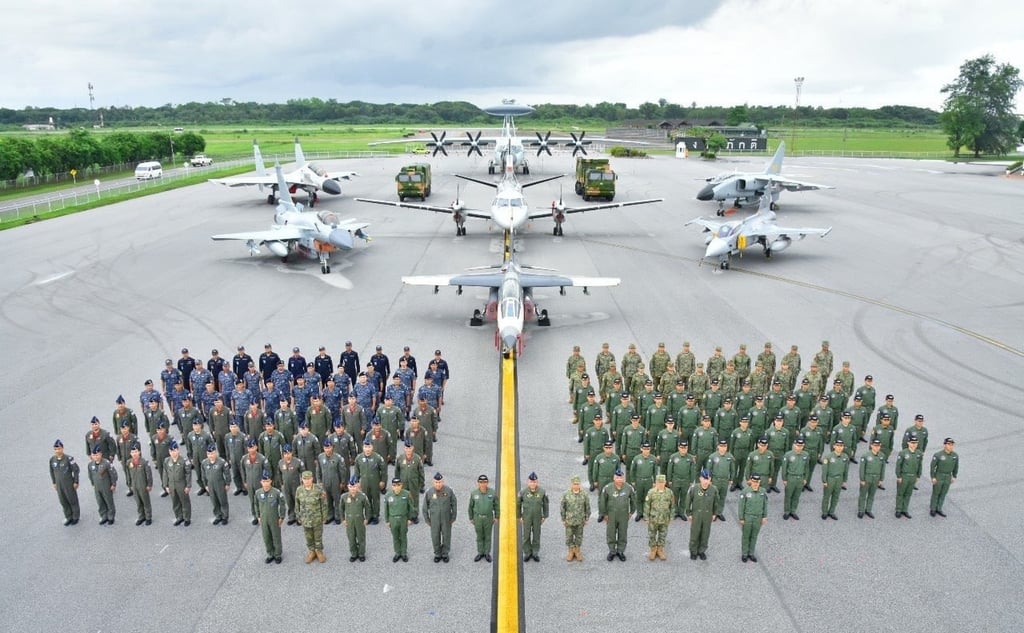China and Thailand will commence their annual joint air force drill this Sunday as Beijing continues to shore up defence relations with Southeast Asian nations.
The exercise, known as Falcon Strike 2024, will be held from August 18 -29 at the Udorn Royal Thai Air Force Base, according to Thailand’s air force.
China’s Ministry of National Defence said it would send aircraft and special operations forces to take part in the training, which is aimed at “enhancing the combat skills of the participating troops from both sides and deepening practical exchanges and cooperation”.
The Falcon Strike joint training exercises have been held annually since 2015 but were suspended in 2020 and 2021 because of the Covid-19 pandemic. This year’s event is the seventh training exercise between the air forces of China and Thailand.
The base, located in Udon Thani province in northeastern Thailand, was formerly a United States Air Force base.

Thailand is the oldest US treaty ally in the region and its only treaty ally in the Southeast Asian mainland. But its ties with Washington were strained following a 2014 military coup that overthrew the democratically elected government.
At the time, Washington swiftly condemned the takeover and reduced its military cooperation with Bangkok, suspending US$3.5 million in military aid and downscaling joint exercises.
The decline in Thailand-US defence relations has allowed China to step in, with Bangkok bolstering military ties with Beijing and making several arms deals.
According to the Stockholm International Peace Research Institute, Thailand’s arms purchases from China have increased since 2014 and included several big-ticket items such as submarines, anti-ship missiles, air defence systems and armoured vehicles.
In May, the Thai navy announced its plans to resume the acquisition of S26T attack submarines from China following suspension of a defence contract in 2023.
The contract, initiated in 2017, has faced numerous delays and obstacles due to engine delivery issues. Additionally, China has reportedly offered the S26T submarines to Indonesian, further clouding the deal’s prospects.
China and Thailand have broadened the scale and scope of their joint military exercises, growing from just one drill in 2017 to three last year covering air, land and sea operations.
However, experts have noted that these exercises are less complex than Thailand’s joint drills with the US.
It is unclear which types of Thai and Chinese aircraft will be used in the latest exercise.
However, in last year’s drills, China deployed its Shaanxi KJ-500 early warning and control aircraft, the J-10C fighter jet, the JH-7A fighter-bomber, and the navy’s J-11B fighter jets.
Thailand opted not to deploy its US-built F-16 fighters last year, instead sending the Saab JAS 39 Gripen fighter, the Alpha Jet, and the Saab 340 early warning aircraft.
Beijing has been boosting defence ties throughout Southeast Asia. China and Indonesia agreed to hold joint military training in their first “2 +2” military and diplomacy talks, which concluded on Tuesday, according to Indonesia’s foreign ministry.
It added that the two countries “reaffirmed their commitment to enhancing cooperation to maintain regional security and stability, prevent terrorism, and address transnational crimes”.
China has also staged joint exercises with Cambodia and Laos this year. Around 1,315 Cambodian and 760 Chinese military personnel took part in a 15-day ground and sea exercise in May, which also involved three Chinese and 11 Cambodian ships. In July, the two-week exercise with Laos involved around 900 Laotian and 300 Chinese troops.





